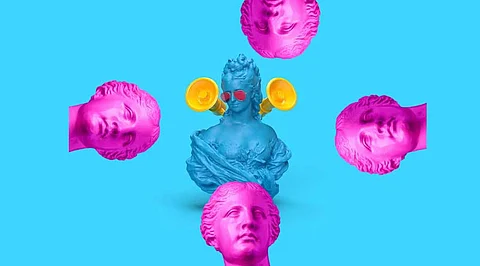

In particular in music, painting, and other creative material, non-fungible tokens (NFTs) have revolutionized how artists and content providers sell and profit from their creations. NFT royalties are one of the ways they make money and enable them to receive ongoing payment for their work.
However, what are NFT royalties? How to make a fortune with NFT Royalties?
When a piece of work is resold, the creator or original owner is given a portion of the sale price known as an NFT royalty. In essence, this functionality enables producers to make money off their NFTs long after the first sale.
NFT royalties are designed to give producers of digital music, art, and other goods a reliable stream of revenue. Additionally, they give artists and other creators a way to profit from the rising value of their works when they are purchased and resold on the secondary market, creating a new source of income in the age of digital creation.
The author of an NFT has the choice to specify a royalty percentage that they will get each time their NFT is sold in the future when it is first issued. The percentage can be altered to the creator's preference; it commonly runs from 2.5% to 10%. The royalty portion is immediately subtracted from the sale price and sent to the original inventor or owner when the NFT is purchased on an NFT marketplace. With the help of this tool, creators may continue to profit from their work even after it has been sold.
You must first mint your NFT before you can start receiving royalties. Establishing a distinct and secure record of ownership entails registering your digital asset on a blockchain network. You may use smart contracts to set the amount or percentage you want to receive from second-party sales of your work during the minting process. As a result, the smart contract will automatically provide you, the original owner, with the set proportion when secondary sales take place.
The NFT royalty system is designed to provide creators the chance to profit from the increasing value of their work over time, even after the initial NFT sale. For musicians, artists, and other producers, this generates a steady stream of money over time, which may inspire them to keep turning out high-caliber work.
Imagine that you produce an NFT and someone buys it from you for 50 ETH. Even though you only receive 50 ETH for this first sale, if you had included a 10% NFT royalty, you would have continued to receive a portion of every subsequent sale. The smart contract would activate and reserve 10% of the selling price for you, the original inventor, if the buyer later sold the NFT for 500 ETH. You would earn an additional 10% royalty as the original owner if the new buyer decided to sell, generating a possible long-term cash stream for you.
While the NFT's retail price may change, the royalty percentage for an NFT is constant. Depending on factors like market demand, scarcity, and other variables, this may result in fluctuations in the percentage of royalties that the creator receives from each sale. As a result, even while the royalty rate doesn't change, the creator may still get a range of royalties from various sales.
In conclusion, NFT royalties have had a huge impact on the art industry despite being a relatively new idea. NFTs' introduction has given producers a dependable source of revenue that allows them to keep practicing their skills. Additionally, it has given previously neglected or undervalued digital products access to a new market.
We should expect more changes in the production, sale, and valuation of art as NFT use increases. NFTs have so not only transformed the art world but also have the power to influence how people express themselves creatively in the future.
Join our WhatsApp Channel to get the latest news, exclusives and videos on WhatsApp
_____________
Disclaimer: Analytics Insight does not provide financial advice or guidance. Also note that the cryptocurrencies mentioned/listed on the website could potentially be scams, i.e. designed to induce you to invest financial resources that may be lost forever and not be recoverable once investments are made. You are responsible for conducting your own research (DYOR) before making any investments. Read more here.
